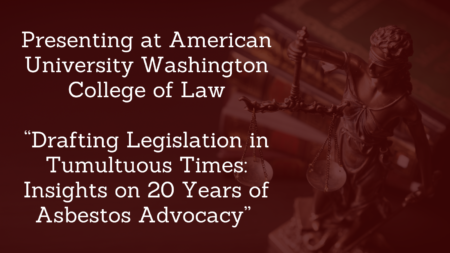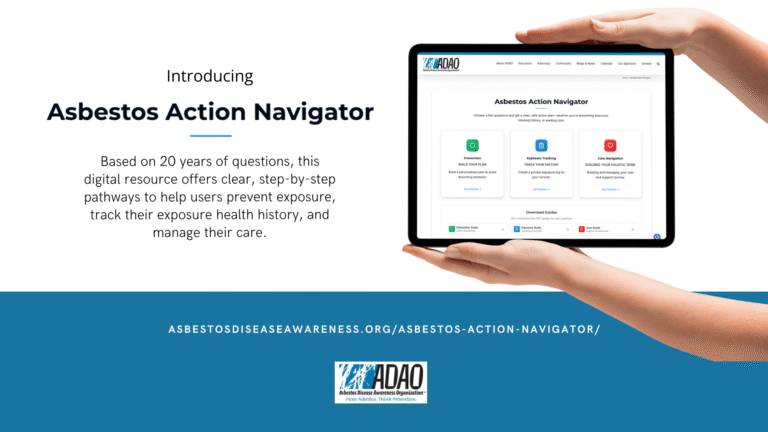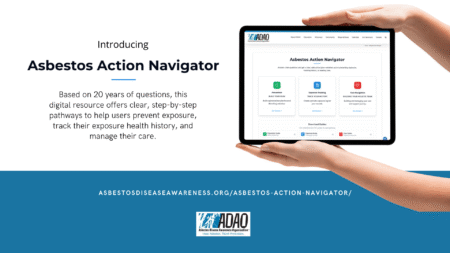Posted on September 25, 2024

The law is the foundation upon which lasting change is built. Clarity, precision, and justice are essential when drafting and passing legislation to protect public health and ensure accountability.
Navigating the path of drafting and enacting asbestos-related legislation is far more like a marathon than a sprint. It is a demanding process, marked by countless challenges, milestones, and unexpected detours. During my lecture, I will explore ADAO’s strategies and tactics to overcome these barriers, honed through years of advocacy, and highlight the lessons learned along the way. As Sun Tzu wisely noted in The Art of War: “Strategy without tactics is the slowest route to victory. Tactics without strategy is the noise before defeat.” This quote resonates deeply with ADAO’s approach to advocacy—strategic patience coupled with well-timed, tactical efforts.
The Supreme Court’s Chevron Deference Opinion on Drafting Legislation and Its Impact on EPA Rules
One of the most significant legal shifts in environmental regulation is the Supreme Court’s ruling in Loper Bright Enterprises v. Raimondo, which curtails the Chevron Deference. This long-standing doctrine allowed courts to defer to federal agencies like the EPA when interpreting ambiguous statutes. Now, courts are no longer obligated to defer to agency interpretations when statutory language is unclear, and the courts themselves can decide, making legislative precision more critical than ever to avoid judicial challenges to agency regulations.
The implications on asbestos regulation in light of this decision are profound. EPA rules and regulations—particularly those dealing with environmental protections—are now at a higher risk of being overturned in court. Therefore, it is crucial that laws like the Alan Reinstein Ban Asbestos Now Act (ARBAN) are drafted with clear, specific language that leaves little room for interpretation. Ambiguity could result in the courts striking down key asbestos regulations, with potentially devastating consequences for public health and safety.
This new legal landscape underscores why ADAO’s legislative work must be more meticulous than ever. In the absence of the Chevron Deference, we must ensure that the laws we advocate for are ironclad and judicially sound to withstand challenges.
Lessons for Future Policymakers
It is essential for the next generation of policymakers to understand the painstaking patience required in drafting legislation. This process often spans years, and meaningful change hinges on sustained effort and unwavering commitment. Despite the slow pace of policy development, ADAO’s continued advocacy has led to significant achievements, such as the bipartisan introduction of several versions of the ARBAN Act. The most recent version, ARBAN 2023, introduced by Senator Jeff Merkley and Representative Suzanne Bonamici, marks another step forward in the fight to ban asbestos.
I will take the students through the intricate journey that began with the Asbestos Awareness Week Resolutions nearly 20 years ago, leading up to ARBAN’s most recent configuration. The growing bipartisan backing we have garnered has been instrumental in bringing us closer to an asbestos ban than ever before. A landmark moment was when Rep. Don Bacon became the first Republican co-sponsor of ARBAN on Mesothelioma Awareness Day last year. His support officially made ARBAN a bipartisan bill (S.1069 and H.R.2402) —a crucial milestone for our movement.
Further bolstering our momentum, Olin Corporation recently threw its weight behind ARBAN, leaving just one remaining company that continues to import asbestos into the U.S. This development is a testament to the power of persistence, advocacy, and collaboration. I look forward to sharing how we reached this critical point in our efforts and why our next steps are more important than ever.
Through our collective experiences, ADAO’s journey demonstrates that meaningful change is possible with the right mix of strategy, patience, and unwavering dedication. We remain resolute in our mission to prevent asbestos exposure, eliminate all asbestos-caused diseases, and uphold the public’s right to a safe and healthy environment.
Through the power of the law, we create the pathways to a safer, asbestos-free future.
Onward,
Linda Reinstein
Social Networks


